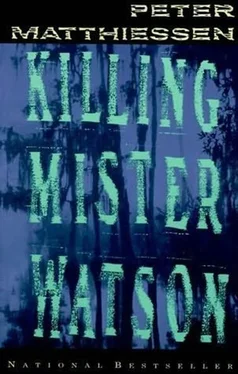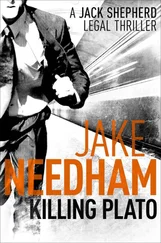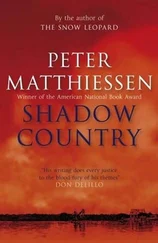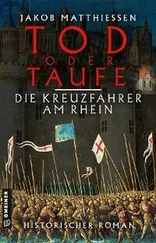Peter Matthiessen - Killing Mister Watson
Здесь есть возможность читать онлайн «Peter Matthiessen - Killing Mister Watson» весь текст электронной книги совершенно бесплатно (целиком полную версию без сокращений). В некоторых случаях можно слушать аудио, скачать через торрент в формате fb2 и присутствует краткое содержание. Жанр: Современная проза, на английском языке. Описание произведения, (предисловие) а так же отзывы посетителей доступны на портале библиотеки ЛибКат.
- Название:Killing Mister Watson
- Автор:
- Жанр:
- Год:неизвестен
- ISBN:нет данных
- Рейтинг книги:4 / 5. Голосов: 1
-
Избранное:Добавить в избранное
- Отзывы:
-
Ваша оценка:
- 80
- 1
- 2
- 3
- 4
- 5
Killing Mister Watson: краткое содержание, описание и аннотация
Предлагаем к чтению аннотацию, описание, краткое содержание или предисловие (зависит от того, что написал сам автор книги «Killing Mister Watson»). Если вы не нашли необходимую информацию о книге — напишите в комментариях, мы постараемся отыскать её.
Killing Mister Watson — читать онлайн бесплатно полную книгу (весь текст) целиком
Ниже представлен текст книги, разбитый по страницам. Система сохранения места последней прочитанной страницы, позволяет с удобством читать онлайн бесплатно книгу «Killing Mister Watson», без необходимости каждый раз заново искать на чём Вы остановились. Поставьте закладку, и сможете в любой момент перейти на страницу, на которой закончили чтение.
Интервал:
Закладка:
Although harshly criticized a few years later by W.E.D. Scott (in the Audubon Society publication called The Auk) for "wanton destruction" at Tampa Bay in 1879, M. Chevelier was a dedicated naturalist. Doubtless the plume-bird shooting financed his scientific investigations, since he was collecting in Labrador and donating bird skins to the Smithsonian as early as 1869. Since Scott's day, three "LeChevellier" bird skins have turned up at the Smithsonian and at the American Museum of Natural History in New York. Scott himself listed seven rare bird specimens credited to "A. Lechevallier," including two short-tailed hawks collected at "Chatham Bay" in 1888 and early 1889.
Jean Chevelier was drawn fatally to this wild coast, where he would spend the remainder of his life. In his first year he lived on the great Calusa mound on Chatham Bend, having purchased quitclaim rights from Richard Hamilton (see interviews); the Hamilton clan, which remained close to him, was also closely associated with Mr. Watson.
BILL HOUSE
I worked for the Frenchman for some years, guiding, plume hunting, and bird collecting, nests and eggs. Chevelier claimed he never shot uncommon birds except as a collector, and he liked to tell how he'd trained boys like Louis and Guy Bradley, also Henry Thompson and myself, not to shoot into no flocks but single out the birds we was really after. I guess that was mostly true, most of the time.
Plume hunters never shot cept in the breeding season when egret plumes are coming out real good. When them nestlings get pretty well pinfeathered, and squawking loud cause they are always hungry, them parent birds lose the little sense God give 'em, they are going to come in to tend their young no matter what, and a man using one of them Flobert rifles that don't snap no louder than a twig can stand there under the trees in a big rookery and pick them birds off fast as he can reload.
A broke-up rookery, that ain't a picture you want to think about too much. The pile of carcasses left behind when you strip the plumes and move on to the next place is just pitiful, and it's a piss-poor way to harvest, cause there ain't no adults left to feed them starving young 'uns and protect 'em from the sun and rain, let alone the crows and buzzards that come sailing and flopping in, tear 'em to pieces. A real big rookery like that offshore island the Frenchman worked, up Tampa Bay, four-five hundred acre of black mangrove, maybe ten nests to a tree-hell, might take you three-four years to clean it out, but after that, them birds is gone for good.
It's the dead silence after all the shooting that comes back today, though I never stuck around to hear it; I kind of remember it when I am dreaming. Them ghosty white trees and dead white ground, the sun and silence and the dry stink of guano, the squawking and shrieking and flopping of dark wings, and varmints hurrying without no sound-coons, rats, and possums, biting and biting, and the ants flowing up all them pale trees in dark snaky ribbons to bite at them raw scrawny things that's backed up to the edge of the nest, gullet pulsing and mouth open wide for the food and water that ain't never going to come. Luckiest ones will perish before something finds 'em, cause they's so many young that the carrion birds just can't keep up. Damn buzzards gets so stuffed they can't hardly fly, just set hunched up on them dead limbs like them queer growths on the pond cypress limbs in the bare winter.
The Frenchman looked like some kind of raccoon-regular coon mask! Bright black eyes and sharp brows, kind of a humpy walk, little thin, wet legs, all set to bite. Maybe his heart was in the right place, maybe not.
Chevelier never did approve of humankind, and he purely hated the rich Yankees off them yachts who come whooping up our rivers in the winters, blazing away at anything that moved, purely hated fellers like Ed Watson, who shot up the best rookeries in spring. I told the Frenchman that to live here in the Islands, a man had to take everything in its own season, but that old fella would just cuss me out in French, waving that shot-up hand of his to shoo me off. Pretty quick, he would start in to yelling about Watson's big ideas about developing this coast, draining the whole Everglades while he was at it. L'Empereur! Chevelier called him. L'Empereur! That drainage talk went all the way back to General Harney, who come out on the wrong coast through Harney River, but it never got cranked up, y'know, till Watson's time. Well, they built them big canals and dikes, crisscrossed the eastern Glades, but this west part is more lonesome than it ever was, cause the big animals and birds are mostly gone. Used to call this place God's country, and we still do, cause nobody but God would want no part of it.
It's true, we had no use for no invaders, and fast as the federal government put in channel markers for them yachts, we'd haul 'em out. Home people didn't need no markers, and we didn't want none. From what we heard, there wasn't a river in north Florida but was all shot out, not by us plume hunters but by Yankee tourists on the river steamers. Real hunters don't waste powder and shot on what can't be eaten or sold, but these sports shot at everything that flew. They crippled up a lot more than they killed and kept on going, just let them dead birds float away downriver.
We never had no time for sport, we was too busy living along, fighting the skeeters. In the Islands we worked from dawn till dark, just to get by. Didn't hardly know what sport might be till we all got hired out as sport-fish guides and hunters. This was some years later, after the fish and game was gone for good.
That Old Frenchman was fighting mad at some Yankee ornithologue named Scut who claimed right in a magazine that Jean Chevelier shot more birds than anybody on the Gulf Coast. "This foking Scut," the Frenchman said, "come here on his vacation to look at his fine feathered foking friends. Visit one big rookery at Pinellas, defam LeChevallier for the worse butch-aire in west Florida! Well, who it is buy my birt specimen? Who it is write that ivoire-beel wooda-pecker ver' rare, then go and shoot ivoire-beel wooda-pecker from the only nest he evaire find? Who it is? This foking Scut! Sham me among my colleague, attack-a me in Au-du-bon Society! All of the same, he buy from my Punta Rassa colleague this short-tailed hawk LeChevallier collect at Chatham Bend! And after I am died, you are going to see it! Damn foking Scut collect first short-tailed hawk in North Amerique! Wait to see it what I am telling it to you!"
Sometimes his old plume-hunting partners Louis and Guy Bradley would come north from Flamingo, prospecting for new rookeries along our coast. We were glad to have the company, but we never passed along no information. Guy never said much but he looked at you so straight that you felt shifty just on general principles. He was the first hunter I heard say that plume hunting was winding down in southwest Florida. Guy Bradley said, "Plain disagrees with me to shoot them things no more. Ain't got my heart into it." I never did admit to Guy how I was collecting bird eggs for the Frenchman. Swaller-tail kite got up to fifteen dollars for a egg, depending on how bright that egg was marked. People all over America and Europe wanted them wild bird eggs, no telling why.
One night the old man come home from Gopher Key, and I laid out a nice swallow-tail clutch next to his plate, and all he done was grunt out something cantankerous about halfwit foking crackers setting out kite eggs where they was most likely to get broke. When he didn't hardly stop to look 'em over, I knowed I was in for it. Henry Thompson told me when I signed on with the Frenchman that the old frog croaked at everyone to hide how lonesome his life was out in the swamp, but this one night I wasn't so dang sure. I put on my best Sunday smile and sing out bright and cheery from the stove, "Come and get it, Mister Chevelier!" He didn't need no more'n that to huff up like a torn turkey and start gobbling.
Читать дальшеИнтервал:
Закладка:
Похожие книги на «Killing Mister Watson»
Представляем Вашему вниманию похожие книги на «Killing Mister Watson» списком для выбора. Мы отобрали схожую по названию и смыслу литературу в надежде предоставить читателям больше вариантов отыскать новые, интересные, ещё непрочитанные произведения.
Обсуждение, отзывы о книге «Killing Mister Watson» и просто собственные мнения читателей. Оставьте ваши комментарии, напишите, что Вы думаете о произведении, его смысле или главных героях. Укажите что конкретно понравилось, а что нет, и почему Вы так считаете.












